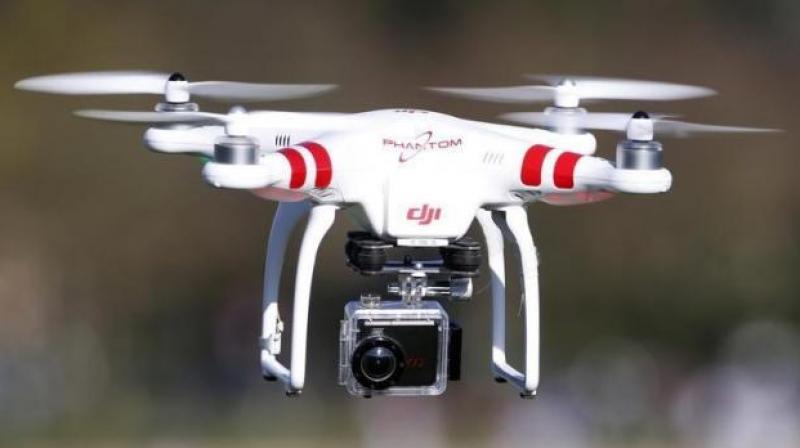Drones to help prevent shark attacks in Australia
A life raft and emergency beacon can be dropped from the drone.

Drones equipped with a shark detection system powered by artificial intelligence will start patrolling some Australian beaches from next month in a bid to improve safety.
The battery-powered drones will provide a live-video feed to a drone operator who then uses the shark-spotting software to identify sharks in real time and with more accuracy than the human eye.
Studies have shown that people have a 20-30 percent accuracy rate when interpreting data from aerial images to detect shark activity. Detection software can boost that rate to 90 percent, said Dr Nabin Sharma, a research associate at the University of Technology Sydney’s School of Software.
“It’s not about replacing human beings all together, it’s about assisting human beings to get the work done in a better way with more accuracy. That’s what the application is meant for,” said Sharma.
Aerial videos of sharks from publicly available sources are used to train the system’s algorithms and differentiate sharks from other marine creatures, surfers, swimmers and boats.
It can then tag sharks and other marine life, such as dolphins and whales, in real time.
Australia ranked behind only the United States in the number of unprovoked shark encounters with humans last year, according to the International Shark Attack File of the University of Florida.
This year, a series of shark attacks off Australia’s northeast coast prompted the controversial deployment of protective nets to save lives and guard the country’s reputation as a tourism destination. Environmentalists say nets can harm wildlife.
The university began working on the shark detection project with Little Ripper Group, a commercial UAV company, in 2016.
Little Ripper drones equipped with the shark-spotter system will be able to warn swimmers through a megaphone when a shark is detected. The drones will patrol various beaches in Australia from September onwards.
Dr Paul Scully-Power, a co-founder of the Little Ripper Group, said a life raft and emergency beacon can be dropped from the drone and the company is developing an electronic shark repellent.
"I guess the world has learned many years ago - defense in depth is the way to go. So this is one of the layers of the depth," said Scully-Power.

